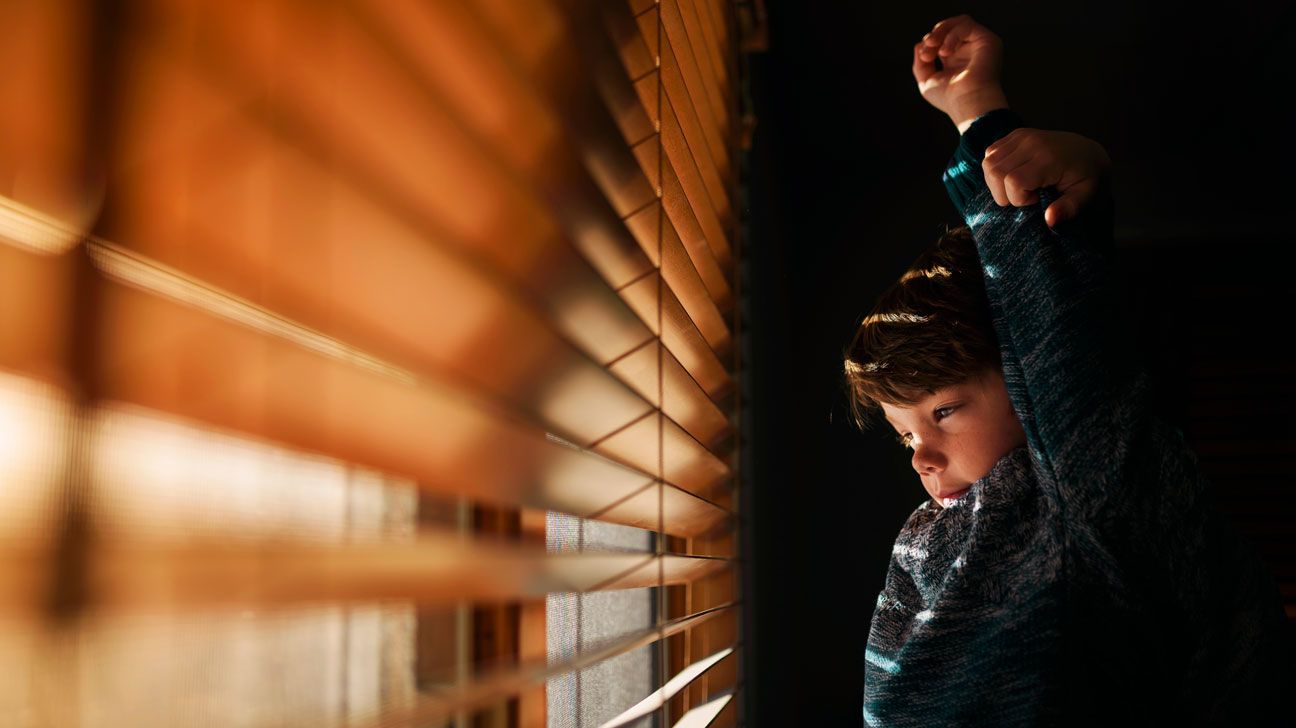Sleep and ADHD have a complex relationship, both influencing the other. When a child with ADHD regularly wakes up too early, ADHD symptoms, medication, and underlying neurology may all be factors.

Attention deficit hyperactivity disorder (ADHD) is a neurodevelopmental disorder featuring symptoms of hyperactivity, inattention, and impulsivity. In addition to cognitive and behavioral symptoms, some children with ADHD experience sleep disturbances.
If a child with ADHD wakes up early all the time, sleep disorders, ADHD symptoms, medication, or underlying neurological factors may all play a role.
Waking up too early happens to almost everyone. If it’s only occasionally, an early wakeup might not be cause for concern. However, there are several reasons why a child with ADHD might regularly wake up too early.
Underlying neurological changes
Changes to the brain’s structure and function seen in ADHD may also influence natural sleep-wake cycles. ADHD primarily affects the frontal lobe, the area of the brain responsible for sleep processes related to circadian rhythm and sleep staging (called sleep architecture).
According to a
Sleep disorders
If you frequently experience a sleep disturbance, like Insomnia or waking early even when you want to sleep longer, it may indicate you’re living with a sleep disorder.
According to a 2023 nationwide Swedish study, living with ADHD may increase your risk of having a sleep disorder. Researchers also found that individuals with ADHD were more likely to be prescribed sleep medication from childhood through adulthood than individuals with no ADHD diagnosis.
ADHD symptoms
Waking too early doesn’t always indicate a sleep disorder. Sometimes, the symptoms of ADHD can make staying asleep or getting back to sleep a challenge. Children with ADHD have trouble ignoring distractions or relaxing if they awaken earlier than they’d like.
ADHD stimulant medications
Medical professionals classify many medications for ADHD as stimulants. They work by increasing certain neurotransmitters in the brain to help improve focus and impulse control. Stimulants activate the central nervous system (CNS) and promote alertness.
All stimulants have the potential to cause insomnia at certain dosages. According to a
Lack of sleep can make symptoms of ADHD worse and vice versa. A small Chinese study from 2022 found severe ADHD symptoms were associated with greater sleep impairment and severe sleep impairment was associated with worse ADHD symptoms.
Even among children with no ADHD diagnosis, a lack of sleep
Managing early wakefulness in a child with ADHD depends on the underlying cause. For some children, having the right ADHD supports in place may help them learn how to calm their minds and return to sleep if they wake up too soon.
For other children, sleep may improve by introducing more regulated sleep practices, also known as sleep hygiene. Sleep hygiene addresses common factors that disrupt sleep, such as too much electronic screen time before bed, loud or hot sleeping conditions, and inconsistent sleep-wake schedules.
When a sleep disorder is present, prescription sleep aids and therapeutic interventions, like cognitive behavioral therapy for insomnia (CBT-I), may be necessary.
Visiting your pediatrician is a start to helping your child manage early wakeups. Not all sleep issues relate to ADHD. Your pediatrician can rule out other health causes.
Also, working with a mental health professional can help put new ADHD supports in place for your child. Children can learn coping strategies that can reduce the impact of ADHD symptoms affecting sleep.
You can help your child improve their overall chances for successful sleep by:
- creating a consistent sleep-wake schedule
- maintaining a bedtime routine
- incorporating relaxation time before bed
- avoiding electronic screen time right before sleep
- keeping the bedroom cool, dark, and quiet
- engaging in regular daily exercise
- avoiding large meals before bedtime
Not all medications used for ADHD are stimulants. Non-stimulant medications, like atomoxetine or clonidine, also affect neurotransmitters in the brain, but without CNS activation. These medications aren’t associated with the same level of sleep disturbances seen in stimulants.
Finding help for a child who has ADHD and isn’t sleeping well
Finding help for a child with ADHD who isn’t sleeping well can come from both the ADHD community and sleep professionals. To learn more about ADHD and sleep or find resources in your area, try visiting:
When waking too early is a common occurrence, children may become deficient in sleep. Over time, chronic sleep deficiency can become sleep deprivation.
Sleep deprivation
Why does my child with ADHD wake up early?
Children with ADHD may wake up too early for several reasons, including:
- ADHD symptom experiences
- ADHD medication stimulation
- irregular sleep processes in the brain
- sleep disorder experiences
Does having ADHD make my child wake up early?
ADHD can influence patterns of early waking in children. Hyperactivity and inattention may make it difficult for children to return to sleep if they wake up too early. And the same altered neurological pathways that cause symptoms of ADHD may also contribute to sleep disturbances.
How can I help my child with ADHD sleep through the night?
Seeking professional guidance for sleep challenges and ADHD can help improve a child’s sleep. Sleep hygiene practices at home can boost their overall chances for successful slumber.
When a child with ADHD wakes up too early, it isn’t always a cause for concern. Sometimes, the nature of ADHD makes it difficult to fall back asleep once you’re awake. However, regular early wakeups can indicate underlying challenges related to sleep disorders, altered brain function, or ADHD medications.
Speaking with a pediatrician and mental health professional can help ensure your child has the best supports in place for both ADHD and optimal sleep.
